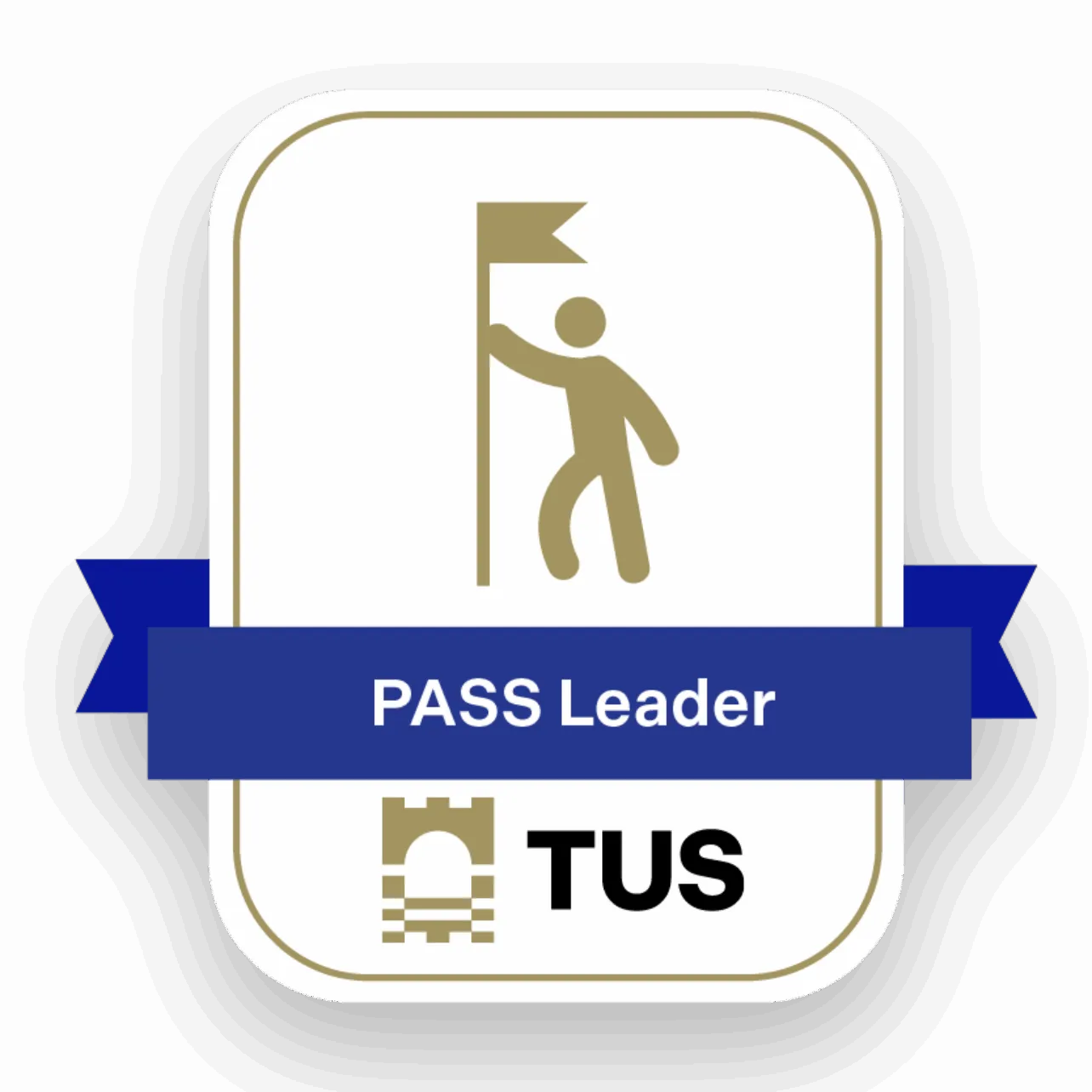PASS Leader Training Digital Badge
As PASS (Peer Asissted Student Support) is designed to help first year students cope better with all aspects of life at third level, PASS Leaders must complete pre-training, mandatory training (online or in-person), required activities on Moodle, engage with the material and their peers, self-assessments and assignments. This badge is available to second year students who successfully completed the application process to become PASS Leaders and subsequent training. This badge is awarded in recognition of students’ hard work, time, engagement and assimilation of knowledge required to become a PASS Leader. Thereby guaranteeing that the Leader was fully prepared to facilitate PASS sessions.
Criteria
At the end of training students will be able to identify the principles and practices of peer assisted learning and the role of a PASS leader. On completion of training the student will understand
- The background and evolution of PASS from Supplemental Instruction (SI).
- The requirements of the role of PASS Leader from planning a session, through facilitation and review.
- The 20 principles of PASS and the importance of each one in a successful PASS session.
- The difficulties experienced by a student entering their first year in higher education and the possible ways in which PASS could help them.
- The theory of how to run a successful PASS session and how it differs from teaching.
- How to encourage first year students to become independent learners.
- The importance of managing their time in PASS sessions.
At the end of training students will be able to explain and apply the facilitation techniques required of a PASS leader. On completion of training the student have the ability to
- Plan and deliver a PASS session with another Leader.
- Research and plan icebreakers appropriate to their first year group.
- Research and plan techniques to aid group discussion, such as think-pair-share, jigsaw, pyramid, quizzes, Know-Want to know-Learn (KWL), Venn diagram).
- Research and plan Classroom Assessment Techniques (CATs) to assess student learning.
- Redirect questions and manage difficult situations with students.
- Work in rotating groups to experience and manage different group dynamics.
- Identify other sources of college support to refer students to.
- Utilise Moodle (or other social media page) for communicating and sharing resources.
- Reflect on their contributions and engagement throughout training using self-assessment.
- Reflect on their training experience and resulting learning.


